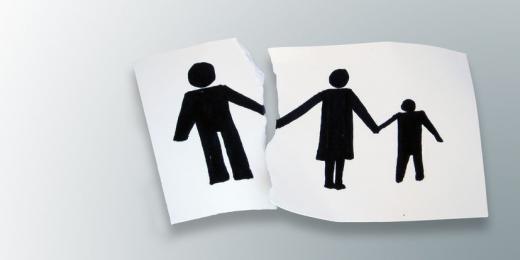Skype Families Offered Some Hope By Supreme Court Ruling

A year after submissions were heard, the Supreme Court finally gave a ruling on R (on the application of MM (Lebanon)) v Secretary of State for the Home Department. The seven learned Judges ruled that the controversial minimum income threshold for UK Spouse, Civil Partnership, Unmarried Partner and Fiancé Visas was ‘acceptable in principle.'
Despite the best arguments of Immigration lawyers and lobby groups, the Supreme Court refused to strike down the Home Office’s policy.
However, for those with dependent children and alternative sources of income, the decision has offered some hope through the qualifications made to the Immigration Rules and entry clearance officers’ guidance laid out by the court.
The minimum income threshold in a nutshell
A UK settled person (i.e. who has British Citizenship or Indefinite Leave to Remain) who wishes to sponsor a non-EEA spouse, civil partner, unmarried partner or fiancé to join them in the UK, must have a minimum salary of £18,600 per year and have had this level of income for six months or more. A further £3,800 is required for one dependent child and £2,400 for each additional child.
This harsh policy, which was introduced in July 2012, has separated many families, despite the best efforts of their Immigration solicitors to reunite them.
Suffer the little children…
The minimum income threshold guidance provides for very little discretion on the part of entry clearance officers to consider the best interests of any children involved, something they have a statutory obligation to do under section 55 of the Borders, Citizenship and Immigration Act 2009. The impact on a child of denying one parent entry into the UK can only be taken into account under ‘exceptional circumstances.' The criteria for exceptional circumstances is incredibly high, something that even the best Immigration lawyers struggle to prove. For leave to enter to be granted, the child would have to be facing serious medical treatment or abandonment. The simple act of refusing to let a parent live in the same country as their child does not qualify, despite ample evidence that separation from a parent can cause ongoing attachment issues and other psychological problems in children.
Thankfully, the seven learned Judges in the Supreme Court recognised the failure of the rules not only under section 55, but also the government’s obligations under the UN Convention on the Rights of the Child, to which the UK is a signatory. It directed that the Immigration Rules and guidance need to be revised to ensure entry clearance officers could give enough weight to the best interest of any children involved in cases where the minimum income threshold should be applied.
Show me the money
At present, any alternative sources of funding such as overseas assets or capital, the future earning potential of the incoming spouse or partner and loans or gifts from family or friends to make up any shortfall in the minimum income threshold cannot be taken into account. Savings used to make up the shortfall can be considered, but only if the couple has a minimum ‘floor’ amount of £16,000 plus 2.5 times the shortfall.
In practical terms, this means if the sponsoring partner earns £15,000 then the couple will have to show savings of £16,000 plus £9,000 to qualify.
The Supreme Court said although it appeared that the Home Office had applied the rule of not taking into account any third-party funding as a matter of convenience, it may not comply with the Human Rights Act and needs to be reviewed.
A chance for some
Whilst there are many couples who will continue to be forced to live apart following the Supreme Court’s judgment, there are others, especially those with children or assets who may now find a door that has been long shut, has now opened up to them.
For now, the Home Office has suspended decisions on all cases where an applicant for a family visa has been refused because the sponsoring partner failed to meet the minimum income threshold until it reviews the decision more closely.
Couples who believe they may have an opportunity to enter the UK because of the qualifications to the minimum income threshold set out by the Supreme Court, should contact an Immigration solicitor immediately to secure the best advice.
OTS Solicitors is one of the most respected immigration law firms in London. Our immigration team dealing with UK family visas comprises of Smit Kumar, Hans Sok Appadu and Maryem Ahmed, all of whom would be happy to talk to you about applying for a family visa and answering any questions you may have on the Supreme Court ruling.
By making an appointment with one of our immigration solicitors, you can be assured of receiving some of the best legal advice available in the UK today.
If you wish to discuss any of the points raised in this blog, please phone our London office on 0203 959 9123.



